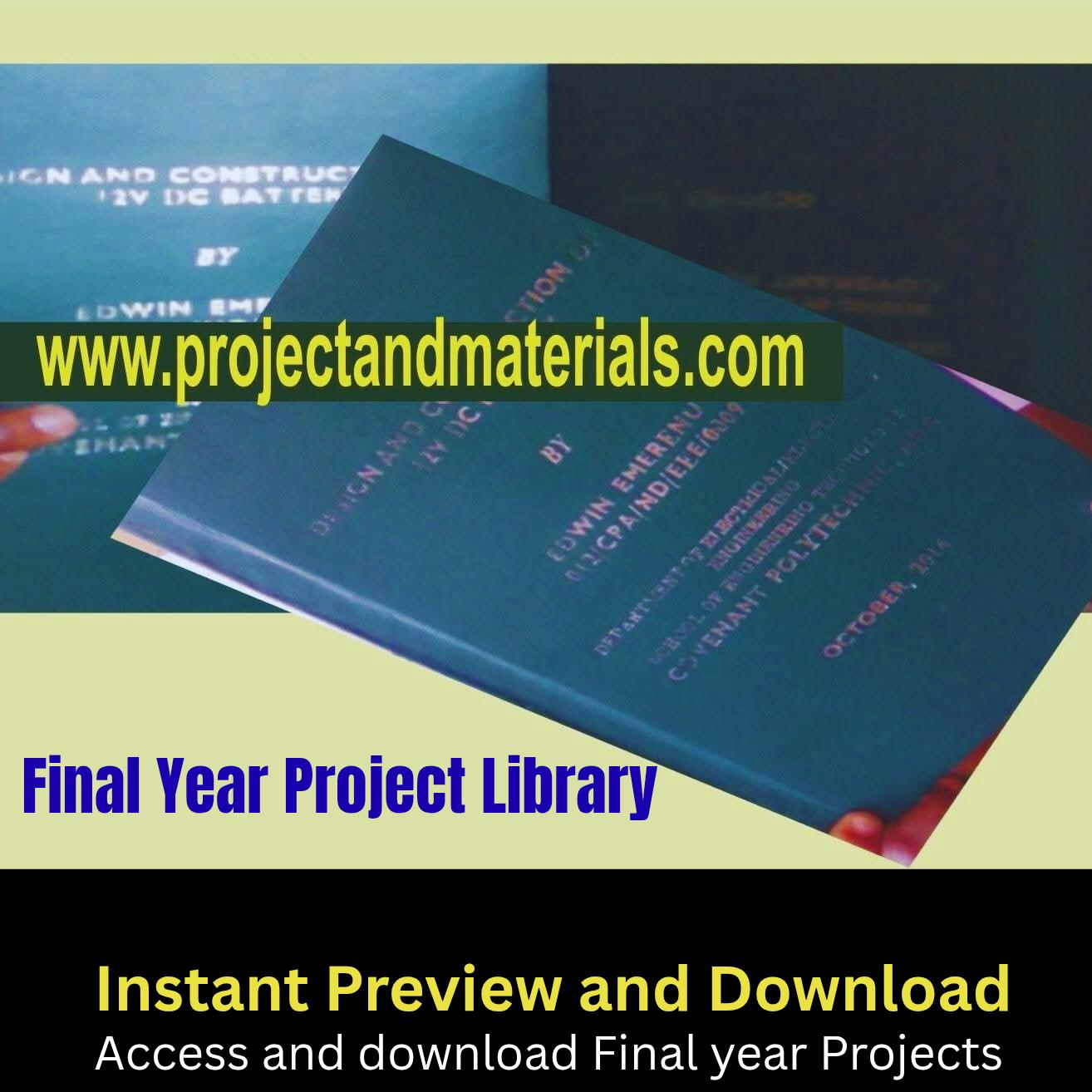COMPARATIVE ANALYSIS OF RESERVES DETERMINATION TECHNIQUES IN OVERPRESSURED GAS RESERVOIRS
📄 Project Abstract
Conventional methods used in determining initial gas-in-place and reserves for a dry gas reservoir entails the use of P/z vs cumulative production data. In a normally pressured gas reservoir, the only important production mechanism is the compressibility of the gas. Many reservoir engineering calculations take advantage of this fact to simplify analysis. However, in deep geopressured gas reservoirs, the compressibility of the gas is much smaller and does not totally dominate production performance. Using simplified approaches may lead to serious errors in these cases. In geopressured systems, the compressibility of the rock and water may be just as large as the gas. Excluding these sources of energy from performance calculations would result in very pessimistic predictions of production versus pressure. Some investigators have postulated that water will be released from shales as the reservoir compacts during depletion. This would result in an internal water drive similar to aquifer in...
🔍 Key Research Areas Covered
- ✅ Literature Review & Theoretical Framework
- ✅ Research Methodology & Data Collection
- ✅ Data Analysis & Statistical Methods
- ✅ Findings & Results Discussion
- ✅ Recommendations & Conclusions
- ✅ References & Bibliography
📚 Complete Project Structure
- Problem Statement & Objectives
- Theoretical Framework & Related Studies
- Data Collection & Analysis Methods
- Findings & Statistical Analysis
- Recommendations & Future Research
- Questionnaires, Data, References
⭐ Why Choose This Petroleum Engineering Project Topics Project?
🎯 Well-Researched
Thoroughly researched with current and relevant sources
📊 Complete Data
Includes statistical analysis and detailed findings
✍️ Original Content
100% original research with proper citations
📝 Properly Formatted
APA/MLA formatting with table of contents
🎓 Supervisor Approved
Meets university standards and requirements
⚡ Instant Download
Immediate access after purchase
🔗 Related Petroleum Engineering Project Topics Project Topics
💬 What Students Say
"This project provided excellent guidance for my Petroleum Engineering Project Topics research. The methodology was clear and the data analysis helped me understand the proper approach."
Full Citation:
Akinyede Esther Olubunmi. (). COMPARATIVE ANALYSIS OF RESERVES DETERMINATION TECHNIQUES IN OVERPRESSURED GAS RESERVOIRS. African and General Studies, 40, 14858.
Citation Formats:
APA
Akinyede Esther Olubunmi. (). COMPARATIVE ANALYSIS OF RESERVES DETERMINATION TECHNIQUES IN OVERPRESSURED GAS RESERVOIRS. African and General Studies, 40, 14858.
MLA
Akinyede Esther Olubunmi. "COMPARATIVE ANALYSIS OF RESERVES DETERMINATION TECHNIQUES IN OVERPRESSURED GAS RESERVOIRS." African and General Studies, vol. 40, , pp. 14858.
Chicago
Akinyede Esther Olubunmi. "COMPARATIVE ANALYSIS OF RESERVES DETERMINATION TECHNIQUES IN OVERPRESSURED GAS RESERVOIRS." African and General Studies 40 (): 14858.
Full Citation:
Akinyede Esther Olubunmi. (). COMPARATIVE ANALYSIS OF RESERVES DETERMINATION TECHNIQUES IN OVERPRESSURED GAS RESERVOIRS. African and General Studies, 40, 14858.
Citation Formats:
APA
Akinyede Esther Olubunmi. (). COMPARATIVE ANALYSIS OF RESERVES DETERMINATION TECHNIQUES IN OVERPRESSURED GAS RESERVOIRS. African and General Studies, 40, 14858.
MLA
Akinyede Esther Olubunmi. "COMPARATIVE ANALYSIS OF RESERVES DETERMINATION TECHNIQUES IN OVERPRESSURED GAS RESERVOIRS." African and General Studies, vol. 40, , pp. 14858.
Chicago
Akinyede Esther Olubunmi. "COMPARATIVE ANALYSIS OF RESERVES DETERMINATION TECHNIQUES IN OVERPRESSURED GAS RESERVOIRS." African and General Studies 40 (): 14858.

Document Details
| Author | Akinyede Esther Olubunmi |
|---|---|
| 📁 Field | Petroleum Engineering Project Topics |
| 🏷️ Type | Engineering and Technology project topics |
| Pages | 125 Pages |
| Words | 23514 words |
| 📘 Chapters | 1 to 5 Chapters |
